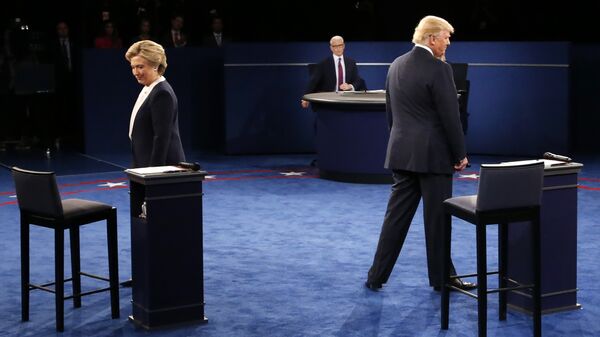In his view, Trump benefited from the October 28 letter Comey sent Congress asserting that newly found correspondence compelled the FBI to reopen an investigation of emails Clinton sent and received as US secretary of state.
The unusual communication from the FBI director to lawmakers just 11 days before the election was “presented to America by Donald Trump as clear evidence the FBI had enough incriminating evidence to send Hillary Clinton to jail for her mishandling of classified information” as secretary, Schirach asserted.
In practice, Comey was much more circumspect, according to Schirach, who said nothing in the letter justified a presumption of guilt.
“Every first-year law student in America knows that reopening an investigation is not the same as an indictment based on compelling evidence of possible criminal conduct, let alone a guilty verdict pronounced by a jury after a trial,” he said.
But the public perception and political fallout of Comey’s disclosure was significant if hard to measure, Schirach insisted.
On November 6, two days before Election Day, Comey issued another letter, stating that FBI investigators concluded no substantive new information had been found in an email cache on a computer shared by Clinton aide Huma Adedin and her estranged husband, ex-congressman Anthony Weiner.
Schirach, however, said Comey’s second letter didn’t help Clinton and may have harmed her electoral chances by fuelling fears of a cover-up.
On Saturday, according to media reports, Clinton told campaign donors on a conference call that Comey’s initial letter unnecessarily put the controversy over her past email practices back before the public, stopping the campaign’s late-stage “momentum.”
Comey has said he was required to tell Congress that new information had compelled the FBI to reopen the Clinton email investigation, Schirach observed.
“Maybe he really had to. However, the way he did contributed to weakened popular support for Hillary Clinton, [which was] not very strong to begin with,” he concluded.
Schirach, a former US Agency for International Development consultant, is also a professor of international relations at BAU International University in Washington and editor of the Schirach Report.



